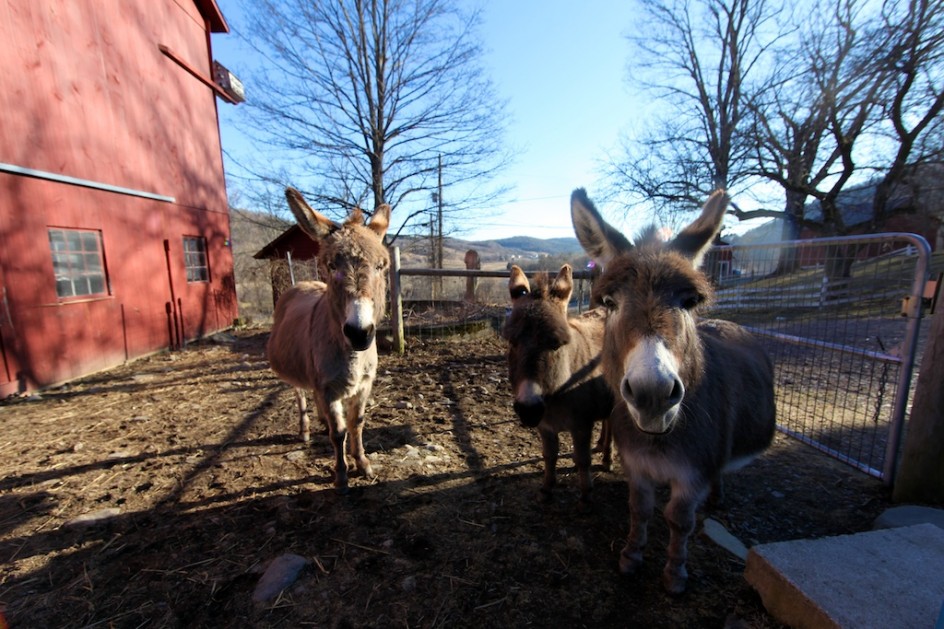
I’ve learned to be conscious of owning my own stories, and also to be careful about how I present them. They sometimes escape and take on a life of their own. I write differently about animals than I once did. I was astonished after deciding to euthanize Orson that hundreds – thousands of people – believed they loved him more than I did and also that they were in a better position than me to make decisions about him. There are entire websites still devoted to pointing out how uncaring and exploitive a human I was for putting him down. We all know that in America true dialogue is rare – most people just state their positions and get angry about them.
We sometimes seem to be losing the notion that free people make the best decisions for themselves, and we don’t always know better.
When I sent Elvis, my 3,000 lb steer to slaughter, something similiar to the Orson controversy occurred. At almost every stop on the book tour, I shock people who ask me how Elvis is by telling them he went to feed homeless people in Glens Falls, N.Y. I get messages almost every day scolding me for not re-homing him or wondering why such a cute and endearing creature had to leave the farm. Because I did not write about him as long or lovingly as I did Orson, the response was muted.
I create these stories, so I am responsible for them. If you live on a farm with farm animals, these decisions of life and death – I’ve had to shoot sick lambs, see chickens picked off by hawks, and struggle with a 3,000 lb steer – become so commonplace it is easy to forget the perspective of people who live differently. Up here, we all know that steers are not pets, and are not cute. They are not bred to live long, and like some pigs, their legs give out after a couple of years because they don’t live long enough to have strong and lasting joints. If they are not put down, they can suffer horrible deaths out in the field, because they fall over and can’t get up and have to shot where they lay.
But people have romanticized and emotionalized animals so much – I am often responsible for this – that there is often little reality or comprehension about what they are really like. I loved Elvis, but taking a 3,000 pound steer as a pet was reckless, disturbing. He was not controllable, he was an enormous expense and he did, in fact, injure me and several other people just by taking a deep breath or twitching. I never permitted children near him, as he could so easily have crushed them if he had been spooked or disturbed.
You cannot blame people for accepting and emotionally reacting to the images and stories you offer them. Writers like me cannot have it both ways. You can’t create the idea of an adorable Swiss Steer and then not expect people to be upset when it turns out the real world catches up to the story. One rather smug person e-mailed me this week saying she will never understand why I didn’t find a home for Elvis. There is not a sane farmer in New York State who would take an aging 3,000 lb steer with collapsing legs in for rescue, or who could or should afford such a thing. Steers are not re-homed on petfinder.org like puppies. You could save 500 dogs for what it took to feed Elvis in a month. I told her perhaps the best way of looking at it is to respect the decisions of other people. I didn’t question her decisions about her pets – not my business – and perhaps she might assume I make the best decisions I can.
The other side of the story is this: as a writer of stories, I take responsibility for them, and make sure to present an accurate and honest portrait of real life with real animals. Writers often succumb to drama and emotionalizing because so many people like it. I have been careful with Simon to avoid the continuous projection of him as a piteous rescue creature. Much as I love him, he is a farm animal, not a Disney character. Life with animals is loving and touching, but not only that and not always that. It is often all too real. And real animals do not live in a no-kill paradise. That is what many humans would like to create and project for them. So I need to be careful with my stories, so that people are not hurt by reality.
Otherwise, they can get away from you.
